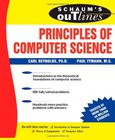Principles of Systems Science

Book Details:
| Publisher: | Springer |
| Series: | Springer , Principles |
| Author: | George E. Mobus |
| Edition: | 1 |
| ISBN-10: | 1493919199 |
| ISBN-13: | 9781493919192 |
| Pages: | 755 |
| Published: | Nov 11 2014 |
| Posted: | May 10 2015 |
| Language: | English |
| Book format: | |
| Book size: | 19.32 MB |
Book Description:
This pioneering text provides a comprehensive introduction to systems structure, function, and modeling as applied in all fields of science and engineering. Systems understanding is increasingly recognized as a key to a more holistic education and greater problem solving skills, and is also reflected in the trend toward interdisciplinary approaches to research on complex phenomena. While the concepts and components of systems science will continue to be distributed throughout the various disciplines, undergraduate degree programs in systems science are also being developed, including at the authors own institutions. However, the subject is approached, systems science as a basis for understanding the components and drivers of phenomena at all scales should be viewed with the same importance as a traditional liberal arts education.Principles of Systems Science contains many graphs, illustrations, side bars, examples, and problems to enhance understanding. From basic principles of organization, complexity, abstract representations, and behavior (dynamics) to deeper aspects such as the relations between information, knowledge, computation, and system control, to higher order aspects such as auto-organization, emergence and evolution, the book provides an integrated perspective on the comprehensive nature of systems. It ends with practical aspects such as systems analysis, computer modeling, and systems engineering that demonstrate how the knowledge of systems can be used to solve problems in the real world. Each chapter is broken into parts beginning with qualitative descriptions that stand alone for students who have taken intermediate algebra. The second part presents quantitative descriptions that are based on pre-calculus and advanced algebra, providing a more formal treatment for students who have the necessary mathematical background. Numerous examples of systems from every realm of life, including the physical and biological sciences, humanities, social sciences, engineering, pre-med and pre-law, are based on the fundamental systems concepts of boundaries, components as subsystems, processes as flows of materials, energy, and messages, work accomplished, functions performed, hierarchical structures, and more. Understanding these basics enables further understanding both of how systems endure and how they may become increasingly complex and exhibit new properties or characteristics.Serves as a textbook for teaching systems fundamentals in any discipline or for use in an introductory course in systems science degree programsAddresses a wide range of audiences with different levels of mathematical sophisticationIncludes open-ended questions in special boxes intended to stimulate integrated thinking and class discussion Describes numerous examples of systems in science and societyCaptures the trend towards interdisciplinary research and problem solving
Download Link:
Related Books:
Principles of Computer Science
Schaum's Outline
Knowledge and Systems Science
Enabling Systemic Knowledge Synthesis
Integrating ideas from the fields of systems science and knowledge science, Knowledge and Systems Science: Enabling Systemic Knowledge Synthesis shows how to create and justify various pieces of knowledge systemically. Written by one of the foremost experts in this area, the book presents approaches for the systemic integration of knowledge, which can help solve complex problems today and in the future. After discussing issues of systemic knowledge synthesis, the book emphasizes the importance of the human dimension in problem solving and introduces a new integrated systems approach called the informed systems approach. It also covers mathematical information aggregation techniques. Moving on to knowledge science concepts and approaches, the book d...
An Introduction to Systems Science
This is the first book that renders a thorough discussion of systems science. It draws on material from an extensive collection of external sources, including several other books and a special library collection complete with videotape empirical evidence of applicability of the theory to a wide variety of circumstances. This is essential because systems science must be responsive to diverse human situations of the widest difficulty, and it must fill the void that the specific sciences cannot fill, because these sciences are insensitive to the necessities of reconciling disparate views of multiple observers, and incorporating local conditions in hypotheses that precede inductive explorations....
2007 - 2021 © eBooks-IT.org



